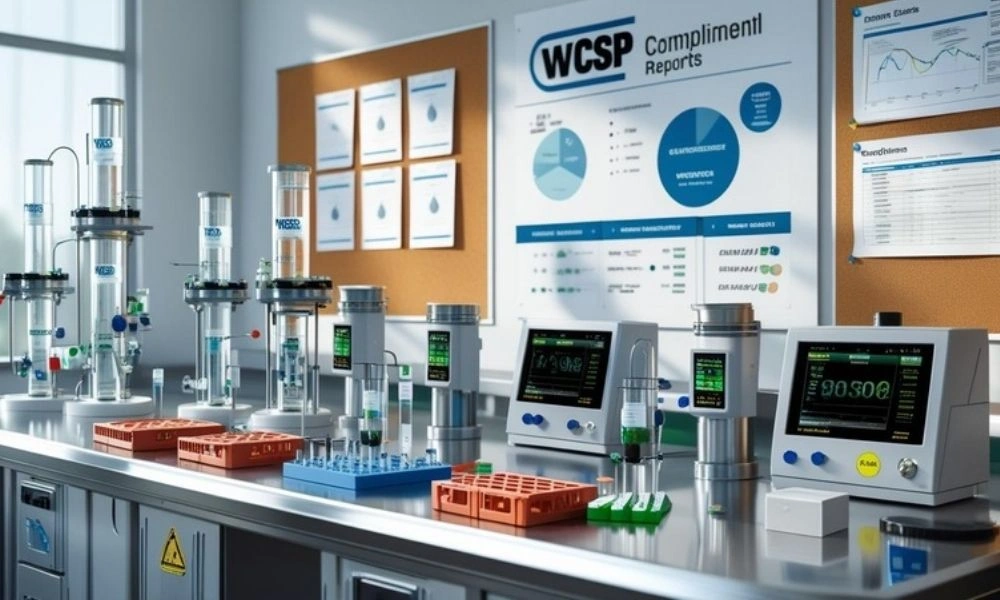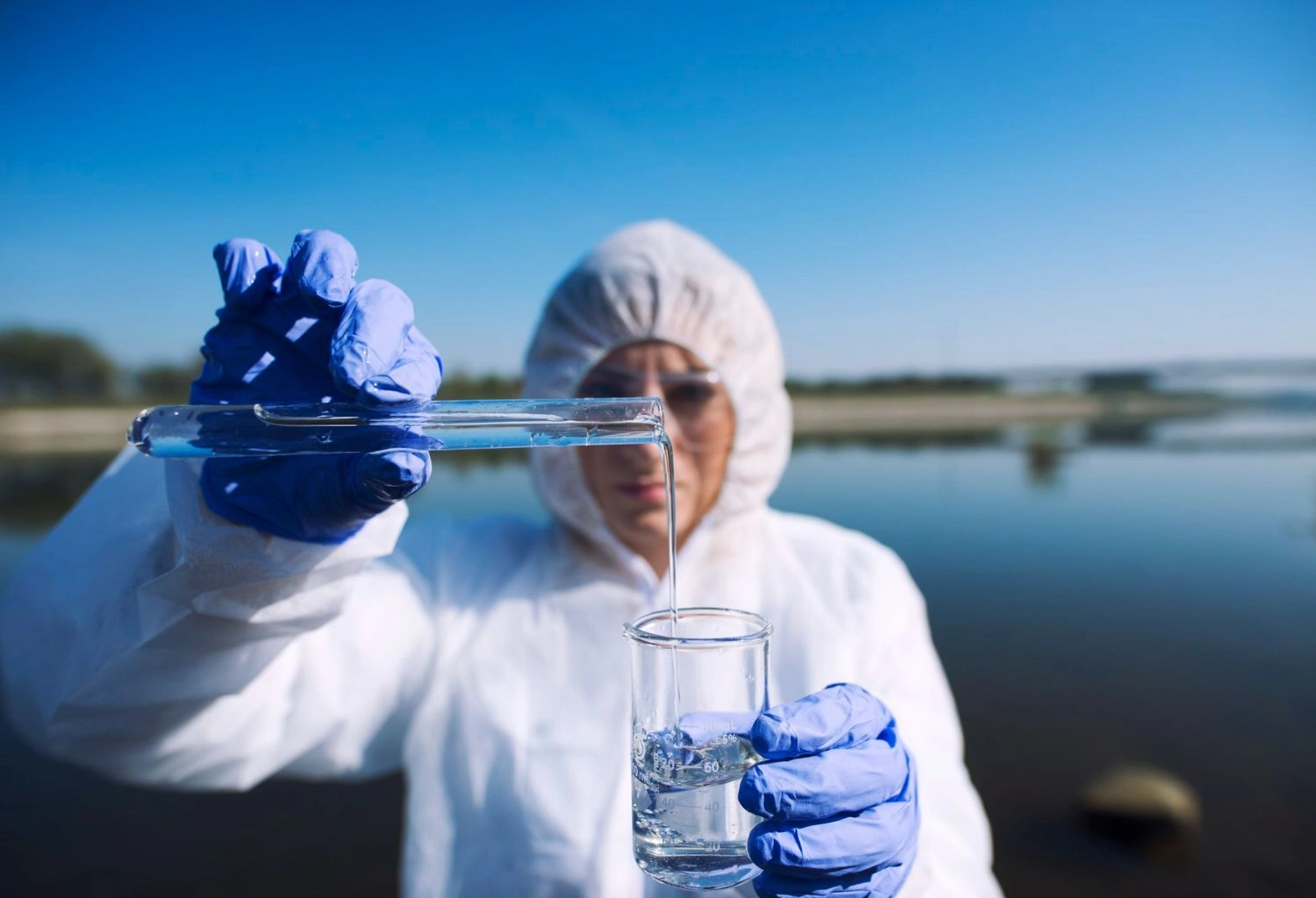Top environmental consultants like WCSP help Pakistan combat pollution, improve water management, and stay legally compliant. Using advanced technologies and eco-friendly methods, WCSP supports sustainable growth for industries and urban areas. Their expertise in wastewater treatment, EIA, and compliance ensures a greener and more responsible future for Pakistan.
Water Quality Monitoring
Why Do Environmental Consultants Matter to Pakistan’s Future?
Pakistan grapples with several environmental issues—air and water contamination, inadequate waste management, loss of forests, and industrial pollution. With increasing urbanization, these problems affect public health, agriculture, and climate resilience directly. Environmental consultants provide specialized advice, technical solutions, and compliance services to mitigate the environmental footprint of industries, municipalities, and institutions.
What Do Environmental Consultants Do?
Environmental Assessment and Reporting
They perform Environmental Impact Assessments (EIA) and Initial Environmental Examinations (IEE) to examine possible damage due to projects.
Regulatory Compliance
Environmental consultants assist organizations in complying with EPA Pakistan and international environmental requirements such as ISO 14001 by:
- Preparing legal documents
- Submitting applications
- Monitoring emissions/discharge
- Evasion of fines and shutdowns
Pollution Control and Monitoring
They are involved in monitoring and mitigation techniques for:
- Air emissions
- Water discharge
- Noise pollution
- Waste dumping
What Are the Key Areas Covered by Environmental Consultants?
1. Water and Wastewater Management
They create systems for minimizing and recycling water consumption in factories, cities, and housing schemes. These include:
- Sewage treatment
- Effluent treatment plants (ETP)
- Water recycling
- Drainage planning
2. Solid Waste Management
From medical waste to industrial scrap, consultants offer:
- Waste audits
- Segregation plans
- Recycling systems
- Landfill design
3. Air Quality Management
They employ real-time monitoring tools and strategies to minimize:
- Dust from construction
- Industrial smoke
- Vehicular pollution
4. Energy Efficiency
Through auditing, they minimize energy bills and carbon footprints. These include:
- Solar feasibility
- Energy-efficient designs
- Load optimization
Who Are the Best Environmental Consultants in Pakistan?
1. Water Care Services Pakistan (WCSP)
WCSP is a reliable, ISO-certified name since 2007. Their consulting services include:
- Industrial wastewater treatment
- EIA/IEE preparation
- Effluent treatment systems
- Environmental audits
- PEPA and NEQS compliance
WCSP employs innovative technologies such as:
- MBBR (Moving Bed Biofilm Reactor)
- AOP (Advanced Oxidation Process)
- Electrocoagulation
- Bioremediation
They are experts in tailor-made, low-maintenance systems for industrial and municipal applications.
2. Hagler Bailly Pakistan
An international giant in environmental consulting, representing:
- World Bank
- ADB
- UNDP
Focus areas: energy, air pollution, and climate studies.
3. Nespak Environmental Division
A government-supported company providing:
- Environmental audits
- Urban planning solutions
- Infrastructure audits
4. EMC Pakistan
Offers technical recommendations for:
- Noise and vibration control
- Marine environmental concerns
- Construction site audits
5. EcoStar Environmental Consultants
Specializing in green buildings and sustainable design strategies for architecture and real estate.
Electrocoagulation
How Does WCSP Approach Sustainable Consulting in Pakistan?
Site Evaluation and Sampling
WCSP dispatches expert teams to sample:
- Water quality
- Soil contamination
- Effluent levels
They interpret the data to suggest customized solutions.
Customized Treatment Design
According to industry (textile, pharma, food), WCSP develops scalable, energy-efficient systems.
End-to-End Compliance Support
From registration to inspection visits, WCSP manages all environmental documentation and reporting.
What Technologies Are Used by WCSP in Sustainable Consulting?
MBBR (Moving Bed Biofilm Reactor)
Efficient, compact for high-load wastewater. Suitable for cities and industries with less space.
Electrocoagulation
Degrades heavy metals, dyes, and toxins without chemicals.
AOP (Advanced Oxidation Process)
Removes pharmaceutical waste, pesticides, and organics through UV and ozone.
Bioremediation
Safe, natural process employing microbes to biodegrade toxic pollutants in water and soil.
Which Industries Require Environmental Consulting in Pakistan?
Textile & Dyeing
Regulates color discharge, chemical usage, and EPA regulation.
Pharmaceuticals
Treats sensitive effluent and provides bio-hazard compliance.
Construction
Regulates dust, debris, and noise pollution with green building.
Food & Beverage
Controls organic waste, water reuse, and hygiene audits.
Hospitals & Laboratories
Manages infectious waste, blood-soiled items, and chemical disposal.
What are the advantages of contracting WCSP as an Environmental Consultant?
Regulatory Peace of Mind
Evade fines, closures, and litigation with 100% EPA compliance.
Cost Savings
Conserve water, energy, and minimize waste processing expenses.
Better Brand Image
Green certifications and clean operations enhance your company’s trust.
Sustainable Growth
Develop your business without damaging the environment or triggering future legal troubles.
✅ Conclusion
Environmental consultants are essential to building a green, safe, and sustainable Pakistan. WCSP leads the way with practical, cost-effective, and certified solutions that protect water, air, and soil. Whether you’re an industrial leader, builder, or municipal officer, partnering with WCSP ensures compliance, efficiency, and environmental responsibility.
Frequently Asked Questions (FAQs)
1. Why are environmental consultants important for Pakistan?
Environmental consultants help Pakistan address pollution, manage waste, and meet legal standards, ensuring public health, protecting natural resources, and supporting sustainable urban and industrial development.
2. What services do environmental consultants offer?
They provide Environmental Impact Assessments (EIA), compliance support, pollution control, emissions monitoring, waste management solutions, and strategies to reduce environmental damage across various sectors.
3. How do consultants ensure regulatory compliance?
Consultants help prepare documents, apply for permits, monitor discharges, and maintain EPA and ISO 14001 compliance to avoid fines, shutdowns, or legal penalties.
4. Which environmental problems do consultants address?
They handle air and water pollution, solid waste, hazardous chemicals, and energy inefficiency through customized solutions that align with both legal standards and sustainability goals.
5. What industries need environmental consulting most in Pakistan?
Textile, pharmaceutical, food, construction, and healthcare industries need consulting to treat effluents, reduce emissions, handle waste, and comply with environmental regulations.
6. What makes WCSP a top environmental consultant?
WCSP provides ISO-certified, full-spectrum solutions including EIA, wastewater systems, air and noise monitoring, using advanced technologies tailored to Pakistan’s industries and environmental needs.
7. What is WCSP’s approach to project consulting?
WCSP begins with site evaluation and water sampling, then designs scalable, eco-friendly systems and handles all documentation, permitting, and compliance support end-to-end.
8. Which technologies does WCSP use in consulting?
They use MBBR, electrocoagulation, AOP, and bioremediation—each chosen based on the waste type—to treat water, soil, and air without harmful chemical byproducts.
9. What are the benefits of hiring WCSP as a consultant?
Clients gain regulatory compliance, reduced utility costs, improved sustainability, better public image, and long-term savings through expert systems and responsible environmental practices.
10. How do environmental consultants support sustainable growth?
By reducing resource use, managing waste, and meeting compliance, consultants help industries grow responsibly, preventing future penalties and ensuring a greener future for Pakistan.



